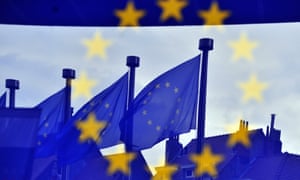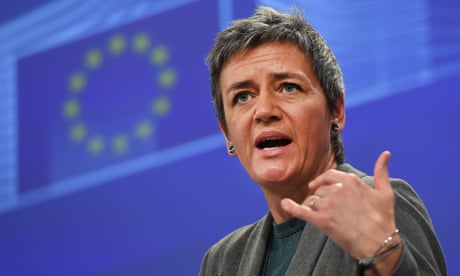NO ONE can ever begrudge former African Union (AU) chairperson President Robert Mugabe his gift of the gab which was in evidence last week as he spoke so eloquently about the long overdue reform of the United Nations (UN) Security Council which sadly continues to be dominated by just five world powers, long after the Second World War which ended in 1945.
HERBERT MOYO
The Security Council was established in October 1945, a month after the second World War ended, and has United States of America, Britain, China, France and Russia as permanent members.
The five countries enjoy the power of veto which determines the course of action and direction of the UN excluding the 54 member states of the AU and other countries.
The UN Security Council which according to political analyst and academic Eldred Masunungure continues to “represent and serve the interests of the victors long after the end of the Second World War” is responsible for the maintenance of international peace and security, according to the body’s website. It also “takes the lead in determining the existence of a threat to the peace or act of aggression.”
The body has largely remained unreformed since its formation, although it also has 10 elected members.
However, it smacks of the greatest hypocrisy and posturing for Mugabe to demand reforms at a global stage when right on his doorstep and for close to four decades, he has presided over a repressive government which has turned a deaf ear to persistent calls for the kind of reforms which would establish and deepen democracy in Zimbabwe.
There was in fact nothing out of the ordinary in Mugabe denouncing the current anachronistic structure of the UN Security Council, which many view as a victors club.
Many progressive people have called for similar reforms.
“In all fairness, the demands for UN reforms are valid and they have not been coming from Africa alone but also from emerging powers like Brazil, India and Indonesia. Here in Africa, Nigeria, Egypt and South Africa are some of the countries that want seats on the council,” Masunungure said.
Another analyst Maxwell Saungweme concurred with Masunungure, adding that “the President (Mugabe) was spot on in demanding reforms. The UN needs reforms. He made very sensible arguments on Africa being bullied and also not having veto power in the Security Council and not having meaningful representation. Africa also needs to have a voice and be respected.”
Addressing delegates at the AU summit, Mugabe spoke in the typical fashion of most demagogues — Nazi German chancellor Adolf Hitler included — taking his spellbound audience of fellow African leaders on an emotional roller-coaster with a speech that expertly blended together all the classic elements of fiery rhetoric, humour and pathos to question and castigate the continued exclusion of African countries from decision-making in the world’s most powerful institution.
“We pay lots of money to go there and attend the General Assembly and make speeches, go back home: year in year out. But the bosses in the Security Council say you shall never have the powers that we have as permanent members. Reform the Security Council. How can only a handful of people (dominate the Security Council)” Mugabe thundered rhetorically with the kind of fury which demagogues like Hitler employed to whip their audiences into frenzied anger against specific targets.
But Mugabe’s anger is the same kind of anger that opposition parties and ordinary Zimbabweans have had over the past 36 years as his Zanu PF government has persistently refused to implement a comprehensive range of media, electoral and security sector reforms that are consistent with the established norms of democracy.
Even as Mugabe drank in the adulations of his peers at the AU, Zimbabwe remains in a state of paralysis without any meaningful effort towards re-aligning the country’s laws to conform to the national constitution three years after it was passed during the tenure of the inclusive government.
Zimbabwe is still crying out for security sector reform, especially as it is common cause that the involvement of securocrats in the country’s elections to ensure Mugabe’s victory has consistently eroded the credibility of the outcome.
From 1985 to the last one in 2013, elections have consistently lacked credibility and have been denounced as such by international, regional and continental bodies including the UN, AU and Sadc as happened with the 2008 elections where MDC-T’s Morgan Tsvangirai won the first round before pulling out of the run-off citing violence and intimidation of his supporters. The Zimbabwe Electoral Commission (Zec) needs to be run independently without influence from the executive. The electoral body needs to be freed of security forces. The security sector needs to abide by constitutional provisions and refrain from making speeches suggesting that they could stage a coup if Mugabe loses elections as they did in 2002.
In addition, the Mugabe regime has continued to shackle the media, particularly the state broadcaster which has been run as an extension of Zanu PF’s propaganda department, denying voices to the opposition and the citizenry.
There has to be much more than the cosmetic changes which have seen few individuals connected to Zanu PF receiving radio licences to give the impression that the airwaves are finally being opened up to conform with constitutional requirements.
As another analyst Alex Magaisa succinctly put it, “it would be nice, if his words corresponded with reality in his own backyard.
Trouble is the Mugabe who struts on the international stage is rather different from the Mugabe at home.”
As a teacher, he would no doubt have read William Shakespeare as evidenced by the strong echoes of the latter’s villain Shylock in the play The Merchant of Venice.
“Hath not a Jew eyes? Hath not a Jew hands, organs, dimensions, senses, affections, passions? Fed with the same food, hurt with the same weapons, subject to the same diseases, healed by the same means, warmed and cooled by the same winter and summer, as a Christian is,” asked Shylock.
“If you prick us, do we not bleed? If you tickle us, do we not laugh? If you poison us, do we not die? And if you wrong us, shall we not revenge? If we are like you in the rest, we will resemble you in that,” Shylock continued in what should go down as one of the greatest speeches denouncing anti-Semitism.
Quite like Shylock, Mugabe also employed the race card ranting, “there is only America and the Europeans — those who say they are white-skinned”. Needless to say that this is not an entirely accurate description of the UN Security Council which also includes Mugabe’s favoured nation, China. (ZIMBABWE INDEPENDENT)






















































